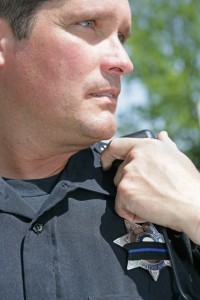0
Our Law Elder Law motto is “Serving Seniors and Those Who Love Them.” Jo Buscemi, niece of Raffaella Calabrese (more affectionately known as “Auntie Florence”), shared these words with me and asked me to share them with you:
Dear Mr. Law,
Around October 2008 my mother and I had our first meeting with Mr. Jonathan Johnson in regards to my Aunt Raffaella Calabrese (“Auntie Florence”). My aunt had suffered for years with dementia and had various (six in all) live-in caregivers. I was told by many to keep my aunt in familiar surroundings for as long as possible and I being her power of attorney, I did exactly that.
I came to your Aurora office one day and had our initial meeting with Jonathan. I was very apprehensive. Norridge HealthCare Facility recommended that I talk with you folks. Well, after our second meeting with Jonathan and many phone calls and questions, we returned in about November of 2008 and contracted with your firm for assistance. I put off as long as I possibly could placing Auntie in a nursing home, and then only because our sixth caregiver was returning to Poland and Auntie had exhausted all her life’s savings in addition to what I paid for from my savings. I have MS (Multiple Sclerosis) and it was difficult to care for my aunt and mom, so I had to quit my job two years ago. But this letter is not about me—it is about my Auntie Florence.
Auntie went to live at Norridge HealthCare Facility on June 18, 2009 and sadly, she passed away on February 9, 2010. We were very satisfied with this facility and its staff. During this time I was assigned to Gina Salamone as our attorney at Law Elder Law. I know I drove Gina and Sean (and everyone who answered the phone) nuts with all my calls and my frantic questions and nervousness. I do believe Gina and I have a bond, though, and I trusted her with my precious family member and for that I am very grateful to her.
I have recommended people to your firm and I have even gone as far as handing out Jonathan’s and Gina’s phone numbers—and advised these people to get all their ducks in a row now rather than wait.
I have attached a picture of Auntie Florence and I wish you to express my family’s sincere appreciation for all the thousand times I called, ranted, cried, and went nuts—but your staff never gave up, not once. Gina even went to the DHS regional manager on our behalf.
Mr. Law, I really appreciate everything your entire staff did for Auntie, and I promise you I will always recommend people who need this type of help to your firm. God bless everyone at Law Elder Law in Aurora, Illinois. Thank you all again on behalf of Auntie Florence and the Buscemi family—we truly thank you. Please enjoy the catered lunch on Thursday that my family is having delivered to your office.
Jo Buscemi



